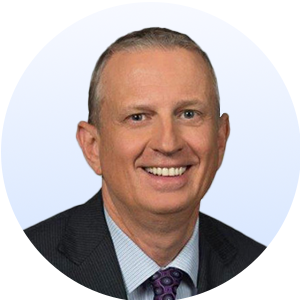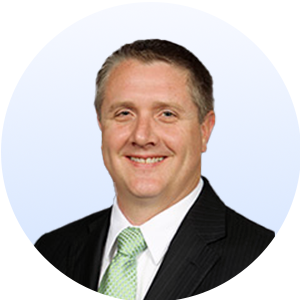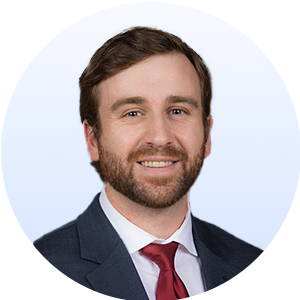Key takeaways
- To keep away from taking over extra debt than you want to, specialists advise taking out low-interest loans and understanding your mortgage phrases.
- You probably have one obtainable to you, open an employer-sponsored 401(ok) account as early in your profession as you may. Beginning early ought to assist your financial savings develop extra over time.
- Create a debt payoff plan and keep it up. Take into account paying off your highest-interest money owed first to keep away from paying extra in curiosity over the size of your mortgage.
In the event you’ve not too long ago graduated from school — otherwise you’re about to graduate school — you will not be pondering instantly about the best way to construct wealth and save for retirement at some point, particularly for those who’re additionally carrying tens of 1000’s of {dollars} of scholar mortgage debt. Chances are you’ll be torn between two selections: put cash towards that pile of scholar loans or construct wealth for the longer term?
For many individuals, scholar mortgage debt would be the first debt they’ll carry of their lives. The looming prospect of scholar mortgage debt compensation can really feel intimidating, and even unimaginable to beat. That’s why it could appear simpler to place off long-term monetary targets now in favor of paying off scholar loans.
However scholar loans shouldn’t stand in the way in which of constructing wealth. Most significantly, your early 20s are an extremely vital time to start investing, since you’ll start accruing compound curiosity, or amassing curiosity on high of curiosity. That is particularly vital when investing for retirement: The sooner you start, the extra your financial savings will develop by the point you attain retirement age.
Bankrate spoke to finance specialists for his or her suggestions for constructing wealth early on in your profession, even if in case you have scholar mortgage debt. Their recommendation exhibits how, with a little bit monetary planning, comparable to avoiding high-interest scholar loans, saving early in life and staying on high of your money owed, you may juggle constructing wealth whereas paying off scholar mortgage debt.
These interviews have been edited for size and readability.
What can folks with scholar mortgage debt do to place themselves in a great place to start out constructing wealth upon commencement?
Perceive your scholar mortgage cost choices
If loans are wanted to fill the (scholar mortgage) financing hole, prioritize zero-interest and low-interest federal loans over high-interest non-public loans. Perceive the curiosity and compensation phrases and discover doable compensation plans that might cut back the long-term monetary burden.
— Xiaoqing Eleanor Xu, Ph.D., CFA
Professor of finance and co-director of grasp’s of monetary know-how and analytics, Seton Corridor College Stillman College of Enterprise
What this implies for you
In the end, for those who repay your scholar loans faster, you’ll pay much less in curiosity. You probably have federal scholar loans, there are a number of compensation choices obtainable to you. To attenuate your curiosity prices, you’re greatest off with:
In the event you want extra room in your month-to-month funds to account for scholar mortgage funds, you may as a substitute go for income-driven compensation (IDR) plans. Sadly, they received’t assist you to keep away from rising tolls of curiosity, until you could have federal Direct Sponsored Loans and don’t plan to remain on IDR for greater than three years:
Open a retirement account now (sure, now)
Basically, graduating with scholar mortgage debt and (paying) again that debt crowds out different wealth-creating actions, like investing within the inventory market or buying a house. The perfect cash transfer for somebody simply graduating is to totally take part in an employer’s 401(ok) plan — if one is obtainable. Maybe the worst monetary mistake anybody could make is popping down free cash. Contributing the max to your 401(ok) additionally reduces your tax invoice. Individuals ought to do no matter it takes to take part of their firm’s 401(ok) plan to the extent to get the total employer match, even when which means taking longer to pay again scholar mortgage debt.
— Robert R. Johnson, Ph.D., CFA, CAIA
Professor of finance, Creighton College Heider Faculty of Enterprise
To construct wealth, begin early. Constructing wealth is one thing that must be intentional and it requires endurance. For brand spanking new graduates, it’s typically useful to reside beneath your means for a number of years to jumpstart the method of constructing wealth. Funds invested in your mid-20s have the potential to extend eight to 10 occasions over by the point you attain age 65.
— Jeff Jones, Ph.D.
Affiliate dean, Missouri State College Faculty of Enterprise
Keep on high of your debt and your funds
College students graduating with school debt ought to create a funds and set up clear spending and financial savings targets even earlier than commencement to assist them handle their funds. They need to additionally prioritize paying off their highest-interest loans first to scale back their debt sooner.
— Xianwu (Sean) Zhang, Ph.D.
Assistant professor of finance, John Carroll College Division of Economics and Finance
Pay down your highest rate of interest money owed first. You need these liabilities off your books. Reside beneath your means, be open to flexibility in your profession path and save aggressively whilst you’re primarily offering for your self reasonably than a household.
— Daniel McKeever
Assistant professor, Binghamton College, State College of New York College of Administration
Avalanche and snowball methodology
Paying off your highest-interest loans first — often known as the avalanche methodology — is a superb debt payoff technique, as a result of it helps you keep away from paying extra in the long term in curiosity. You too can strive paying off your smallest money owed first, which is known as the snowball methodology.
Study extra
(Latest graduates want) to ensure to pay himself/herself first. Meaning making saving and investing a high precedence and never deviating from that plan. Saving and investing whereas paying off scholar debt typically requires an individual to reside beneath the life-style stage that their revenue stage may usually help.
— Jones, Ph.D.
Missouri State College
First, having to (pay) scholar mortgage debt upon commencement will not be a wealth-accumulation loss of life sentence. The truth is, having to handle a funds straightaway could show to be a (helpful) talent mastered. Because the largest part of retaining a excessive credit score rating is well timed funds, it’s very important all mortgage funds stay present. How a lot you save is extra vital than the place these funds are invested.
After making a funds and monitoring spending, asking your self, “Do I’ve an expense situation or a income drawback?” will present some readability as to a path ahead. Because it’s not nearly treading water — however reasonably advancing your monetary future, maybe a second job — or a change of employment — will grow to be mandatory. Eradicating debt is probably the most impactful motion you may take — whether or not (at age) 23, 43 or 63.
— David Johnston
Adjunct professor of finance, Faculty of New Jersey College of Enterprise
How one can arrange a funds
Earlier than beginning your debt payoff journey, you’ll want a funds. Sit down with final month’s financial institution and bank card statements and make a listing of all of your recurring month-to-month bills. That will embrace your:
As soon as you realize the place your cash goes each month, you’ll be capable to decide how a lot of your take-home pay you may put towards longer-term targets of debt compensation, in addition to investments, financial savings and another wealth-building methods. The 50/30/20 rule advises spending 50 % of your take-home revenue on bills, 30 % on discretionary spending and 20 % on investments, financial savings and debt compensation.
Even when your bills are greater than 50 % of your revenue, the rule is an efficient start line to think about how a lot of your revenue you could have obtainable to funnel towards your longer-term targets. Make certain to additionally enable room in your funds for discretionary spending — even if you wish to spend all of your further revenue in your longer-term targets for debt compensation and financial savings, it’s simply not real looking for most individuals.

Monetary advisors may also help with all of your monetary questions
Monetary advisors may also help with all the pieces from budgeting to retirement planning. Many work with a variety of individuals, no matter their asset quantities.
Study extra
The underside line
Even for those who’re paying lots in scholar loans, you may nonetheless construct wealth early in your profession. With a little bit monetary planning, you may nonetheless make these mortgage repayments, put money into retirement and save for emergencies.
For extra on the best way to make investments early in your profession, try Bankrate’s Investing 101 information and tips about the best way to begin investing in your 20s.
Consultants interviewed by Bankrate
Bankrate interviewed six specialists from universities throughout the nation for his or her insights about constructing wealth:

Robert R. Johnson, Ph.D., CFA, CAIA
Professor of finance, Creighton College Heider Faculty of Enterprise
Robert R. Johnson, PhD, CFA, CAIA, is a Professor of Finance at Creighton College’s Heider Faculty of Enterprise. He’s additionally principal in Financial Index Associates. Till April 2018, he was president and CEO at The American Faculty of Monetary Providers in Bryn Mawr, Pennsylvania. He was previously senior managing director at CFA Institute in Charlottesville, Virginia and was accountable for all points of the CFA Program for almost all of his 15-year tenure. In 2013, he acquired the Alfred C. “Pete” Morley Distinguished Service Award from CFA Institute in appreciation of his management, stewardship and excellent service.
Previous to becoming a member of CFA Institute, Johnson was a professor of finance at Creighton College from 1984 by way of 1996. Bob received a number of educating awards and in 1994 acquired the university-wide Robert F. Kennedy Award for Educating Excellence. He has over 80 refereed articles in main finance and funding journals. His publications have appeared within the Journal of Finance, Journal of Monetary Economics, Journal of Portfolio Administration, and the Monetary Analyst Journal, amongst others. Johnson has served on the board of RS Investments, a San Francisco-based funding administration agency and on the board of The Virginia Institute of Autism.

David Johnston
Adjunct professor of finance, Faculty of New Jersey College of Enterprise
David Johnston is the managing associate of Amwell Ridge Wealth Administration and a Licensed Monetary Planner. He constructed the agency across the basic perception {that a} correct monetary plan begins with threat administration, infuses revolutionary, enhanced diversification inside an funding portfolio, and offers for an environment friendly switch of wealth to the following technology. Johnston is an adjunct professor on the Faculty of New Jersey College of Enterprise. Johnston earned a BS in finance from the Faculty of New Jersey.

Jeff Jones, Ph.D.
Affiliate dean, Missouri State College Faculty of Enterprise
Jeff Jones is an affiliate dean within the Faculty of Enterprise at Missouri State College. His main analysis pursuits are within the space of banking and monetary establishments, particularly the impression of opacity on the valuation of banks and systemic monetary crises.
He has taught all kinds of finance programs, comparable to investments, portfolio administration, private monetary administration, derivatives and various investments, fastened revenue securities, monetary markets and establishments, financial institution administration and company finance. He has additionally taught programs exterior of finance, together with enterprise foundations, rules of accounting and primary financial idea.

Daniel McKeever
Assistant professor, Binghamton College, State College of New York College of Administration
Daniel McKeever is an assistant professor on the College of Administration at Binghamton College, State College of New York. A former economist on the Commodity Futures Buying and selling Fee, McKeever has analysis and educating experience in threat administration.

Xiaoqing Eleanor Xu, Ph.D., CFA
Professor of finance and co-director of grasp of monetary know-how and analytics, Seton Corridor College Stillman College of Enterprise
Eleanor Xu is a Professor of Finance on the Stillman College of Enterprise, Seton Corridor College (SHU). She has revealed over forty influential analysis articles in investments, fastened revenue, and monetary markets, together with her work broadly cited by skilled retailers comparable to Bloomberg, CNBC, and Wall Road Journal. Xu directs SHU’s CFA College Affiliation Packages in Finance, Mathematical Finance, and Monetary Expertise, and serves as Co-Director of the Grasp of Monetary Expertise and Analytics program. She beforehand chaired SHU’s Division of Finance and taught at Saint Louis College. Xu earned her Ph.D. in Finance from Syracuse College.

Xianwu (Sean) Zhang, Ph.D.
Assistant professor of finance, John Carroll College Division of Economics and Finance
Sean Zhang is an Affiliate Professor of Finance at John Carroll College, the place he directs the Monetary Planning and Wealth Administration Program (a CFP Board Registered Program). His analysis on family finance matters has been revealed in main monetary planning journals and received greatest paper awards at nationwide conferences. A wonderful educator (acknowledged by the Boler Faculty of Enterprise at JCU), he holds a Ph.D. from Texas Tech College and the Licensed Monetary Planner certification.





